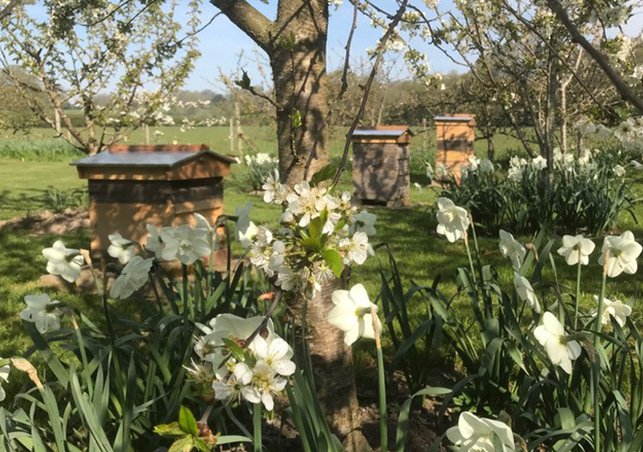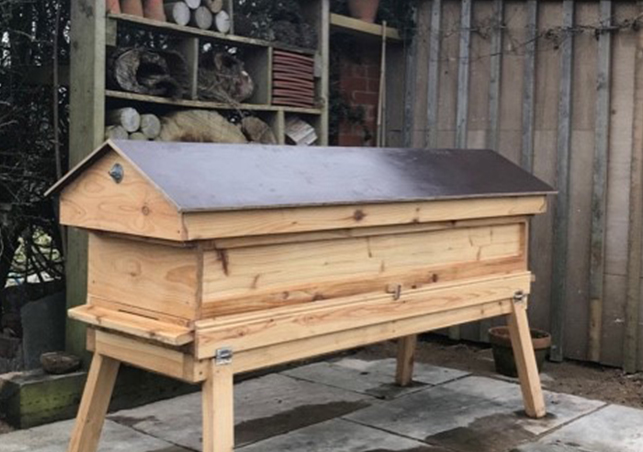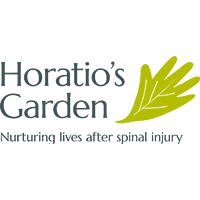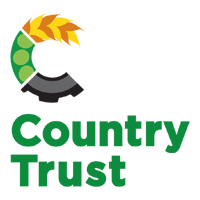Meet our bee-blogger: garden owner and beekeeper Colin David …
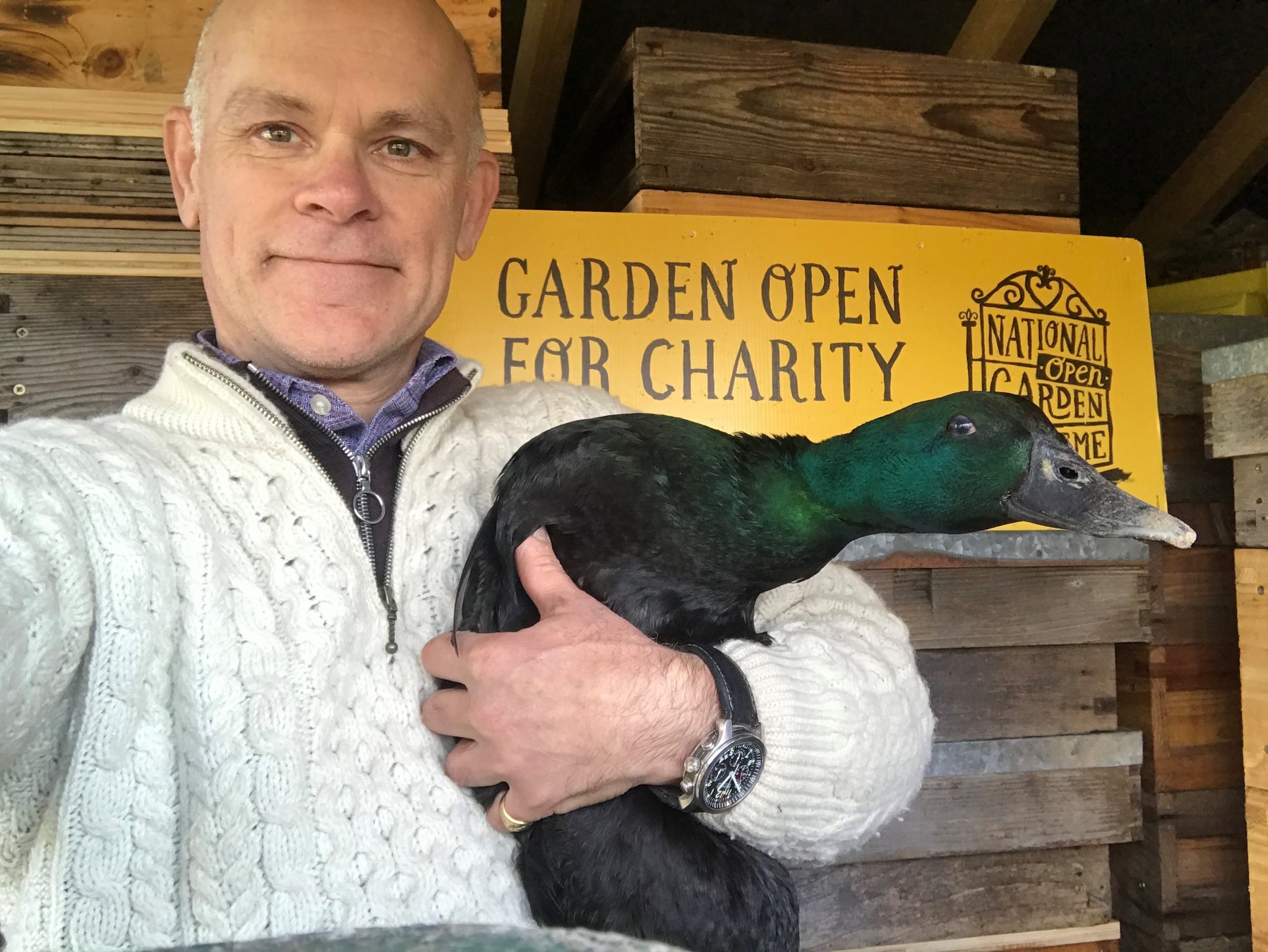
The National Garden Scheme has a wonderful variety of gardens and garden experts and many either plant specifically for bees and wildlife or are home to hives of their own.
Colin David (pictured above with George), garden owner at the beautiful Southlands Lodge in Surrey, is an experienced beekeeper. With ten busy hives Colin is also starting 2021 with a long hive and is participating in the National Honey Monitoring scheme.
We’re delighted that Colin has agreed to take us through the bee-keeping year with a monthly bee blog. Here we find out more about him and what it is about bees that is so fascinating and important:
What made you decide to keep bees?
As a way to connect more effectively with the garden. Having bees makes one acutely attuned to the seasons and weather. And, they are such fascinating eusocial* insects.
Why do gardeners need bees?
Pollination, pollination, pollination!
Is it easy to keep bees?
Pre varroa** beekeeping was uncomplicated; disease of any sort was almost unknown and hardly featured in the books for beekeepers. Today husbandry and welfare of the hive is critical. Beekeeping requires specific knowledge, skill and experience.
What do you need to plant or be close to, to keep bees well fed or attract them to your garden?
At the moment (in March) hazel, laurel, and spring bulbs are good pollen and nectar sources as well as early blooms such as hellebores. However, bees forage up to 3km from the hive so neighbours gardens are important too!
Is it easy to produce honey?
Beekeepers commonly produce 1-10 kg of honey per colony. Only 3% of beekeepers produce over 50kg of honey per colony. Beeswax is also a wonderful byproduct and produces wonderful furniture polish, candles and skin care products.
What qualities do you need to be a beekeeper?
You will never stop learning as a beekeeper; a curious mind, resilience, critical thinking, humility and the ability to remain calm in stressful situations are all good traits for would-be beekeepers.
Are bees and garden visitors compatible?
Yes, with care and good communication. There are a number of essential rules to follow to ensure that visitors and bees are a happy combination. Click here for the top ten tips
Colin’s garden at Southlands Lodge is scheduled to open Saturday 10th and Sunday 11th July – for more details and to book click here
Explore our bee-friendly gardens
- Spring in the cherry orchard
- The Long Hive
* Eusociality (from Greek εὖ eu “good” and social), the highest level of organisation of sociality, is defined by the following characteristics: cooperative brood care (including care of offspring from other individuals), overlapping generations within a colony of adults, and a division of labor into reproductive and non-reproductive groups.
** Varroa is a genus of parasitic mites associated with honeybees – the mites are recognised as the biggest pest to honeybees worldwide due to their ability to transmit diseases such as deformed wing virus (or dwv) to larval or pupating bees, resulting in death or severe deformity of the pupae.
Read Colin’s Bee Blogs:




